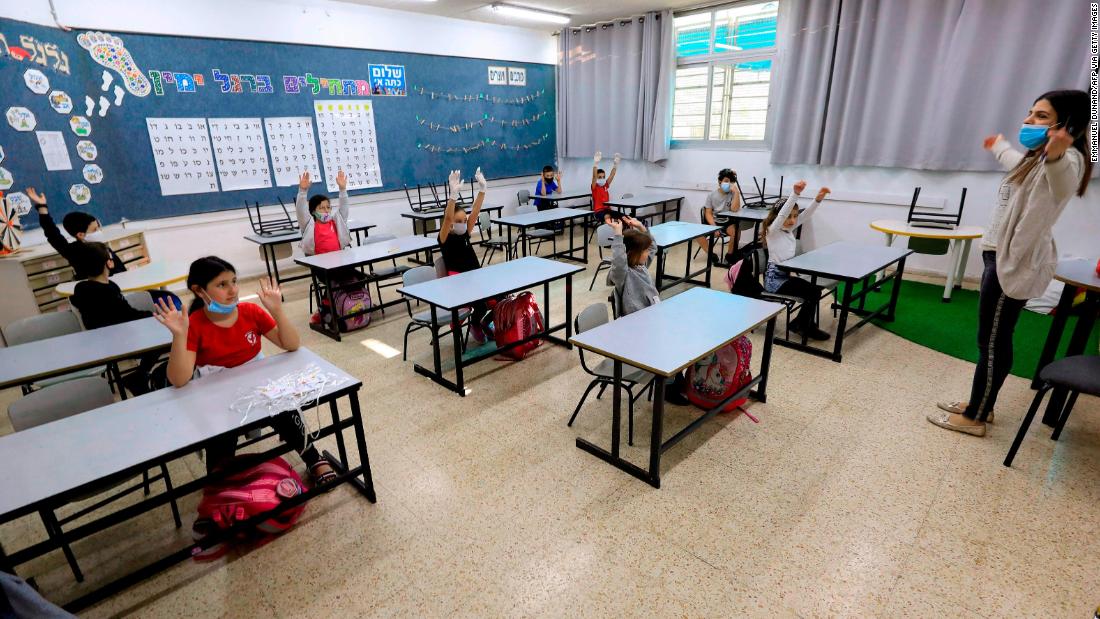(CNN Español) — The coronavirus pandemic created a change in global education, as millions of students left the classrooms and moved to virtuality in an attempt to contain coronavirus infections around the world.
The closure of schools affected almost the entire planet. By mid-July, more than 160 countries closed schools, and to date, almost 220 million students around the world are affected by these closures, according to figures from the United Nations Educational, Scientific and Cultural Organization. Unesco. https://en.unesco.org/covid19/educationresponse
Virtual education can be a win-win in times of pandemic, but millions of students may be left out of learning due to lack of resources, experts have warned.
This was the panorama of education in 2020 in the world.
With the closures due to the pandemic, the world faces a “generational catastrophe”, says the UN
UN Secretary General António Guterres warned that the world faces a “generational catastrophe” due to the closure of schools amid the coronavirus pandemic.
“The covid-19 pandemic has caused the greatest disruption to education,” Guterres said in a video message to launch the “Save Our Future” campaign together with partners from the education sector and United Nations agencies.
Guterres said that “despite the lessons on television, radio and online, and the best efforts of teachers and parents, many students remain out of reach.”
READ MORE HERE
More than 160 million students in Latin America were unable to return to school
The massive closings of schools caused an “unprecedented crisis” in all areas, according to UNESCO. And in terms of education, the closures and confinement orders caused “more than 1,200 million students at all levels of education” to stop having face-to-face classes around the world.
The report, published in August 2020, stated that “the student population affected by these measures in the 32 countries [de América Latina y el Caribe] it reached over 165 million students »who could not return to classes in the classrooms.
In Latin America and the Caribbean, the vast majority of countries “have established forms of continuity of studies in various distance modalities”, such as online classes, offline modalities or blended learning, says the report, but one issue What worries the experts are the confinement measures that may have “serious implications for the mental health of the population and in increasing exposure to situations of violence towards children and adolescents.”
READ MORE HERE
The advantages and disadvantages of virtual education
Can you learn the same online as in person?
“The school does not replace virtuality”, says Gabriel Torres, pedagogue at the National Pedagogical University of Colombia. According to him, the school is made for children to meet and socialize with other children and thus to develop criteria, norms and forms of behavior “which is the fundamental task of the school.”
However, virtual classes from home have some advantages such as interaction between families and a more active process of parents in the teaching processes.
See more here:
Students with special needs face virtual learning challenges
In the US alone there are approximately 7 million students with special needs. They qualify for specifically designed accommodations at the school, known as an individualized education plan or IEP. With virtual education many of these students find that the daily education they receive does not deliver what they were promised and less than what they were legally promised they would receive.
“Managing virtual learning is difficult, but managing virtual learning for two children with special needs is much more difficult,” said Alicia Burgstahler, a mother of two children with special needs who require special educational accommodations.
READ MORE HERE
The consequences beyond education due to the closure of schools due to the pandemic
The coronavirus pandemic highlighted inequalities and harsh realities experienced by children around the world, who now face school closures. Emiliana Vegas, co-director of the Center for Universal Education and an expert in Education in developing countries, speaks with Dr. Marisa Azaret on the subject.
7 ways to take advantage of online learning
For most families, the online learning they faced this year was acceptable at best. But even the busiest parents had to take steps to put their families in a position to succeed.
Here, then, are seven tips to make virtual learning better and better.


